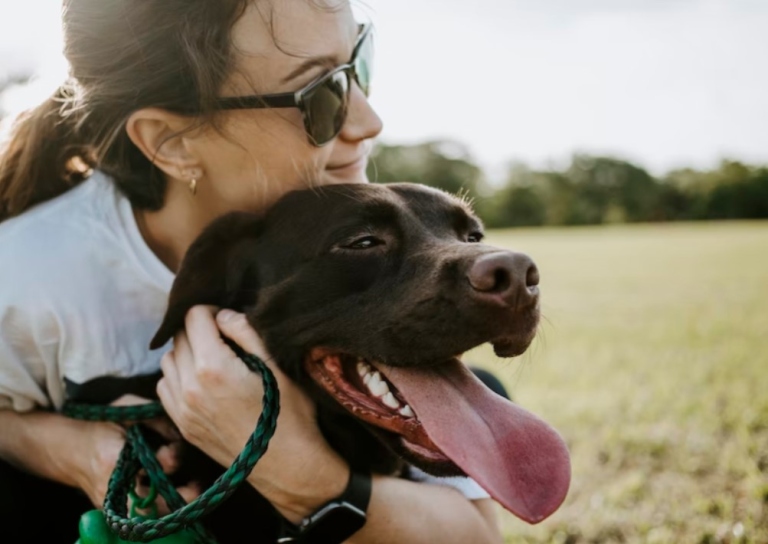After much discussion, you and your family have made the decision to buy a pet. However, whether you choose to purchase a dog, cat, bird, or perhaps something else, there will be various expenses that come with pet ownership, some of which you may not have given much thought to in your excitement about adding a new member to your family. To make sure you know how your new pet’s expenses will fit into your budget, here are four expenses to always keep in mind.
Pet Food
Just like you, your new pet will need to eat a healthy diet. If you have not taken a stroll down the pet food aisle recently, you may find yourself experiencing sticker shock at what pet food costs today. However, just as it is when you are shopping for yourself, you’ll find plenty of options from which to choose for your pet’s food. By planning carefully, pet food can be more affordable than you may realize.
Different Factors Affect Pet Food Prices
The cost of pet food can vary greatly depending on the type and size of your pet, as well as their age and health needs. For example, puppies may require special puppy formulas designed for growth and development which are more expensive than adult formulas. And if your pup has a sensitive stomach or allergies, you may need to buy grain-free formulas or food specifically designed for those conditions. Your vet can help determine what type of food would be best for your particular pup.
In addition to the type of food your pet needs, there are several other factors that affect the price including brand name and quality level. Cheaper brands typically use lower-quality ingredients like cornmeal or by-products which are cheaper for manufacturers but not necessarily good for your pup’s overall health and well-being. On the other hand, higher-end brands may contain higher quality proteins like beef or lamb as well as added vitamins and minerals—but they come with a higher price tag too. Depending on how much you spend on a particular brand and size bag will also affect how much it costs each month – so consider buying in bulk when possible!
How Much Does Pet Food Cost Each Month?
Once you know what type of food your pup needs and determine an appropriate budget for their meals, it will be easier to estimate how much it will cost each month for their food supply. A good rule of thumb is to start by calculating how many cups per day they need based on their weight (consult with your vet if needed). Then multiply this number by 30 days in the month to get an estimate per month. If you know how many cups are in each bag then divide this number by the amount in each bag to get a more exact estimate per month! Keep in mind that certain environmental factors such as temperature can affect consumption levels as well – so adjust accordingly if needed!
Knowing how much it costs each month to feed your furry friend is essential when budgeting for all your pet-related expenses. Taking into account different factors such as size, age, diet preferences (grain-free vs regular), etc., can help give you a better idea of what kind of budget you’re looking at each month when it comes to feeding time! With some research into different brands and sizes available at local stores or online retailers like Amazon Prime or Chewy’s Pet Store, you should be able to find something within your budget that meets all nutritional needs for your pup! Happy Shopping!
Medical Care
Once you buy your pet and welcome it to your family, keep in mind that it will need regular medical care from a veterinarian to keep it healthy throughout its lifespan. This will include everything from getting regular vaccinations to medication. Additionally, you’ll have vet dental care, which means your dog or cat may occasionally need to go in for a teeth cleaning or other dental procedure now and then. To offset medical costs for your pet, you may want to buy pet insurance, which is increasingly popular with pet owners.
Vet Visits
It is recommended that your pet should have a vet visit every 6 months or more often if they are older or have any health concerns. During these visits, they will get a full physical exam, vaccinations as needed, and possibly some bloodwork depending on the age of your pet. The cost of these visits can vary greatly depending on where you live and the type of office you go to. In general, you should expect to pay around $50-$100 for routine vet visits.
Vaccinations
Your pet will need certain vaccinations throughout their life in order to protect them from diseases such as rabies and the distemper virus. Some vaccines are required by law so be sure to check with your local government for regulations in your area. Vaccines typically cost around $20 -$50 each but may be discounted if purchased in multiples or as part of a package deal from your vet’s office.
Emergency Care
No one likes to think about emergencies but unfortunately, they do happen. Being prepared is key when it comes to emergency care for your pet. Make sure you know where the closest 24-hour veterinary hospital is located in case of an emergency after hours or on weekends. The cost of emergency services can vary significantly depending on the problem but generally range from $200-$300 for basic emergency exams and treatments such as stitching minor cuts or treating spontaneous vomiting episodes. If more advanced emergency procedures such as surgery are required then costs can easily exceed $1000 or more depending on the severity of the situation. Make sure you ask your vet if they offer payment plans that can help spread out payments over time in case of large unexpected bills due to emergencies or other medical issues that come up suddenly with pets.
Knowing what expenses you may incur with pet medical care is essential for any responsible pet owner who wants their furry friend to stay healthy and happy! Veterinary visits, vaccinations, and even emergency care can be expensive but there are ways to save money over time by looking into discounts offered by vets, buying vaccinations in bulk, or even setting aside funds specifically for potential medical expenses down the road for your beloved pet companion(s). Doing so will ensure that you are prepared both emotionally and financially when it comes time for giving them the best health care possible! This article has given an overview of what types of expenses you should expect when it comes time for giving Fido his annual checkup; now go forth armed with knowledge!
Grooming
If you decide to buy a dog, you may need to also consider grooming expenses as part of your pet ownership. While most people think grooming will be very expensive, it doesn’t have to be that at all. While you can choose to take your dog to a professional groomer, you can also buy proper grooming tools and learn to do it yourself. Before you know it, your dog will be the best-looking pet in town.
Supplies
Finally, don’t forget all the various supplies your new pet will need. For example, if you buy a cat, it will need a litter box and litter to fill the box. Also, just like your kids, your new pet will need a few fun toys to play with day after day.
Even though pet ownership in today’s world can be expensive, the joy your new pet will bring to you and your family will far outweigh the money you spend on their care. By planning carefully along the way, you’ll find the expenses can be more than manageable.


















